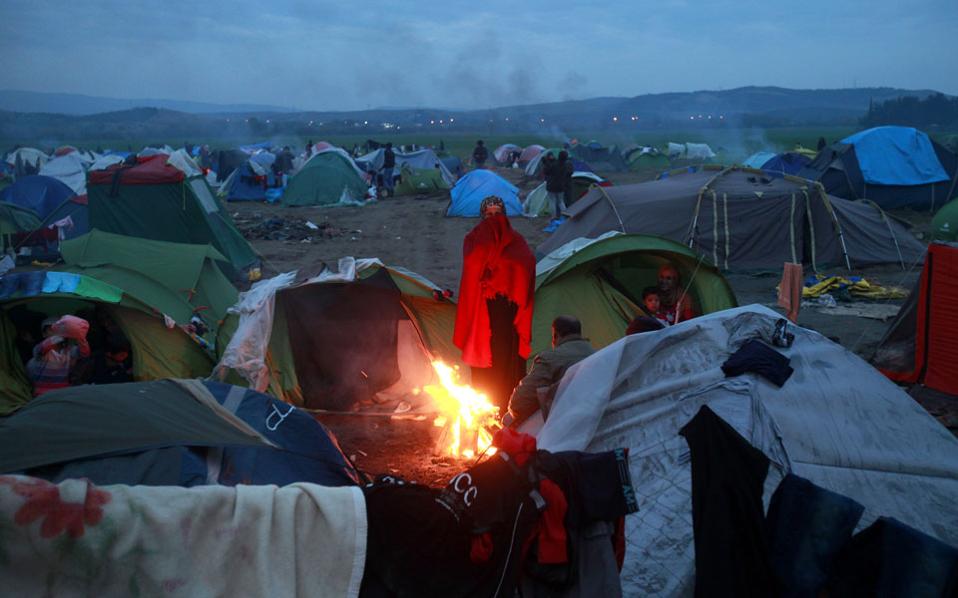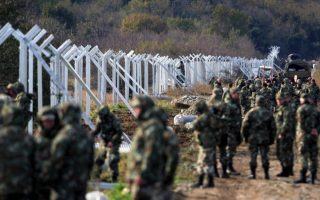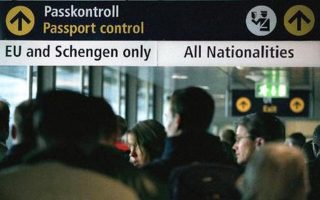EU’s refugee plan would correct past mistakes

The European Union's deal with Turkey to address the continent's refugee crisis, due to be finalized on Friday, will be difficult both to agree and to implement. Why? Because that would require righting a series of glaringly poor decisions the bloc has made over the last 20 years.
Start with the center-piece of the plan, resettlement. For years the UNHCR, the United Nations' refugee agency has been trying to scale up a system in which it identifies asylum applicants most in need of sanctuary, vets them and puts them on a plane to new homes around the globe. The UNHCR has struggled to find takers – particularly in Europe – even for the modest 100,000 of the world's 20 million refugees it identifies annually. Between them, the US and Canada (population 370 million) took three quarters of the 104,000 people resettled through the UNHCR program in 2014. The EU (population 500 million-plus) resettled about 10 percent.
The deal on the table with Turkey would change this situation dramatically, because for every refugee returned from Greece to Turkey, the EU would resettle another from the camps. At the peak of the refugee exodus to Europe in October, 200,000 men women and children made the boat trip from Turkey to Greece in a month. With that country's northern border now shut, those figures should be much lower this year: The refugees only land in Greece so they can travel on to Germany and other points north. Even so, the number eligible for resettlement would be on a far higher order than the roughly 800 a month the EU has resettled in the past.
Giving refugees a legitimate route to take sanctuary in Europe is key to resolving the continent's refugee problem. It would end a situation in which the only recourse for refugees is to pay smugglers to get them onto EU soil, so they can claim asylum rights under the Geneva convention and related protocol. The challenge that the surge in asylum seekers presents to a union as large, elderly and rich as the EU is one of pace, distribution and control – not absolute numbers. Even so, getting countries like Hungary to agree to, let alone take part in, any plan that welcomes Muslim refugees will be hard.
Second, the deal as currently envisaged would require all EU members to grant visa-free travel to 76 million Turks. Given the xenophobia afflicting much of Europe right now, this has met resistance, too. Yet Turkey has had a customs union with the EU since 1996, requiring its companies to comply with thousands of pages of EU legislation. Visa-free travel wouldn't entitle Turks to live or work in the EU. It would, however, enable businessmen to meet their biggest trade partners, families to visit relatives, students to study, and Turks in general to see what Europe's stronger democratic institutions have to offer.
Albania, Brazil, Columbia, Samoa and Serbia are among the 55 countries that enjoy visa-free travel to the EU. Turkey should have been added to that list long ago
Third, there's money. The EU has offered 3 billion euros ($3.4 billion) to help Turkey provide the schools, healthcare and jobs that would allow them to make lives in Turkey, rather than move to the EU. Turkey, of course, wants more. This is a negotiation in which the EU is the supplicant, and Turkey already hosts 2.5 million refugees. Yet, during the five years of the Syrian civil war, EU nations have fallen woefully short of meeting the UN's appeal for funds for Syrian aid (with some honorable exceptions). Lebanon and Jordan will need similar sums, not to mention Syria itself, should the nascent cease-fire there make it possible to scale up aid programs there.
The draft deal also promises to revive Turkey's membership negotiations. It is unlikely that Turkey's current government has any intention of making the hard choices needed to actually join the EU. But the decision – forced mainly by Cyprus and France – to freeze Turkey's membership bid soon after talks began in 2005, was unprincipled and counterproductive. It has robbed Europe, and pro-European forces inside Turkey, of leverage and credibility for no appreciable gain.
Finally, the deal would force 27 of the EU's member states to help Greece handle the potential disaster they have created for it by working with Former Yugoslav Republic of Macedonia (FYROM) to seal off the route north. This is the kind of eventuality for which the EU was created: to solve economic and security problems collectively. So far it is failing.
There are problems with this deal, as human rights organizations have pointed out. These begin with anointing Turkey as a "safe" country to which refugees can be returned, given that the government doesn't fully implement the Geneva Convention on refugees. Yet the scale and nature of this crisis demands compromise. An agreement that discourages refugees from making a dangerous journey, offers a real alternative of resettlement, reaffirms the value of the EU as an enterprise and assuages reasonable fears that allowing hundreds of thousands of refugees to arrive unvetted from the war zones of the Middle East provides a path for jihadists would be well worth making.
[Bloomberg view]





